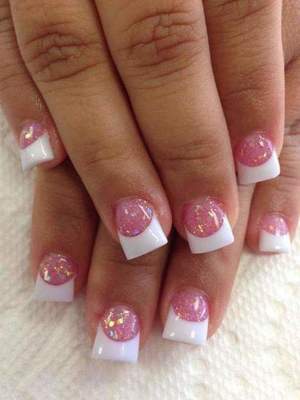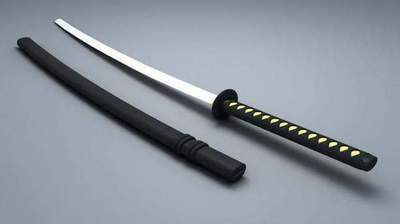How did the famous idioms
"I would know the man shabby kind of the whole story, but do not water it down!" - a phrase familiar to everyone. But all these expressions have their own, sometimes very unpleasant story of origin. While in the home and in life they are used easily, without the negative sense. About the most famous of these terms - in our material.

Learn the ins and outs and hack to death on your nose - when it is necessary to be afraid, and when you can relax
Today the ins and outs of an important call, the hidden information. The origin of this expression is very hard: in the past to get the person to tell the truth, the executioners drove nails under his nails or needles. So it mined "lowdown truth." It was one of the worst kinds of torture. Fortunately, today, saying this expression, we do not have in mind the painful and crippling body techniques.
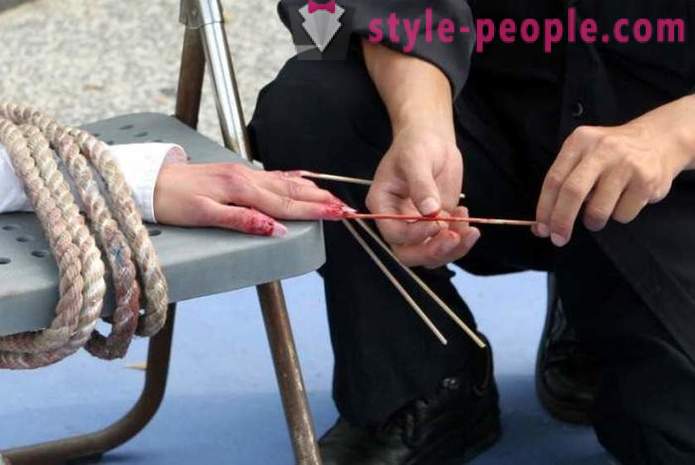
The same ill-origin has a turnover of "real truth." In ancient times, the whip, Batog that punish the offender, called "Linnik". Unable to withstand the torture, the person answering questions. The information that was obtained using whip-Linnik, called genuine.
But another well-known expression "hack to death on your nose." It seems that it is also associated with some severe torment, which is used with a purpose. Used this phrase when they want a person to remember something tightly. So where does your nose? It is good that we are not talking about the part of the body, which is on our faces. In ancient times, the nose called the wooden plank for nicks, where farmers who can not write, do the marks or patterns with a knife. It was a kind of old notebook.
A goal as falcon - but where does the birds?
"What's with him to take, it is a stitch." So they say about a man who has not acquired wealth, and there is in poverty. And here is a bird, but still naked?
There are several options for the origin of this expression. First, it has to sound different, namely, "as the goal sukol". In ancient times, farmers made a fence of stakes that protect their crops. The stakes were smooth and free of branches bare. To fence not overwhelm, it was supported by more powerful clubs. In the autumn of palisades dismantled, and mind remained bare sukoly that stuck out forlornly, representing loneliness and poverty.

The second version is still a falcon, but proud bird, and the ancient weapon to destroy the gates and walls. It is very thick and heavy logs, which are upholstered with a powerful iron or iron bar. Fixture hung on chains, joint efforts rocked and rammed the ramparts of the enemy. Surface-totarana this was naked (smooth).
Do not play pawns, although it is very cheap
"Enough pawns in play, go finally work!" - so cried an angry boss, noting that the subordinates were distracted from the manufacturing process, and are engaged in some kind of nonsense. And what is meant by the word pawns?
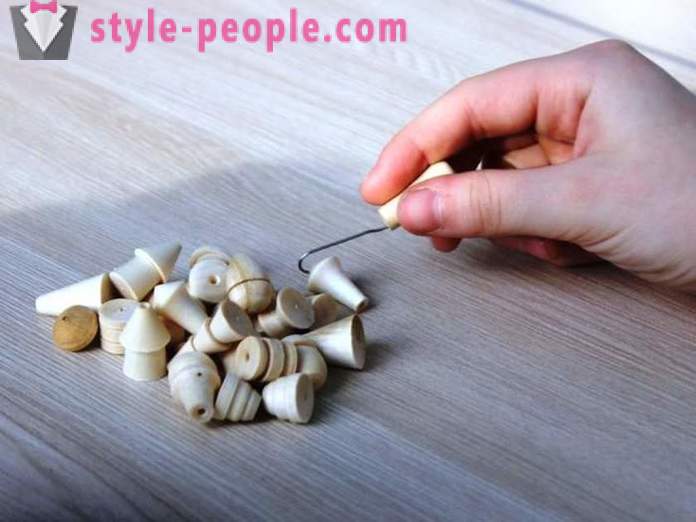
This is not just a funny word: in ancient times, so-called simple, but delays the game. Chopped straw are poured a bunch, and then took up playing the special hooks and tried to pull as many straws. But so that others are not scattered and not moved. Most often, the game play out of boredom, when really nothing to do. Therefore, the expression directly reflects inefficient and not very meaningful.
What is a waste of time, and why it is not necessary to pull?
When will some monotonous, tedious work, they say, that you have to "pull the gimp." Today, few people think about what is meant in reality. This expression has become so familiar that is used unconsciously. And in fact, in ancient times it was called the gold thread a thin metal thread, sometimes of silver or gold, which is embroidered carpets or clothes.
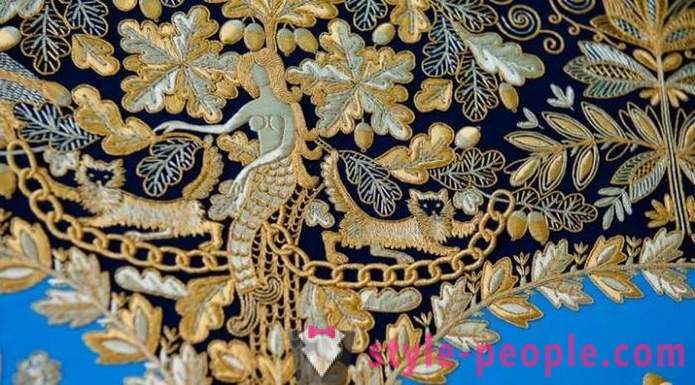
In order to produce such a wire, to make a smooth and thin, the metal is heated and pliers pulled, this manipulation was repeated several times. This is called pulling rigmarole. Process required care, patience, takes time and became the personification of long and laborious work.
shabby appearance - it's about the meal or not?
When they say "he looks shabby," appears a man dressed in very modest and unfashionable things that the image is anything but a stylish and special. Where did this expression? It all started during the time of Peter the Great, when the merchant, who bore the name Zatrapeznikov, owned a linen factory in Yaroslavl. Fabrics that are made there, were very different.
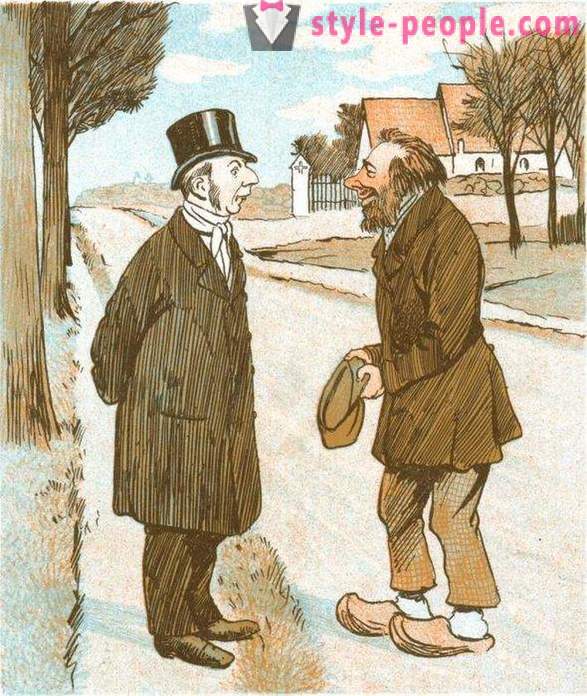
For rich customers produced a fine silk, spun-quality woolen fabrics. But there was one more direction - the release of a special, very cheap fabric from which the manufactured overalls, scarves, pants, covers for mattresses. This tissue is not very pleasant to the touch, rough, called zatrapeza. Unfortunately, among the poor and the robe of zatrapezy considered a long-awaited purchase. Shabby appearance meant belonging to a wealthy social circles.
How to escape from the unknown forces and whether or not water it for this purpose in a mortar
In ancient times believed that water can store information. Healers on vodichku whispered, giving her (according to them, of course) healing properties. Sometimes said that people became ill from what drank the water, over which someone wished him harm. In order to purify the water from the negative, and a method invented - tread water.
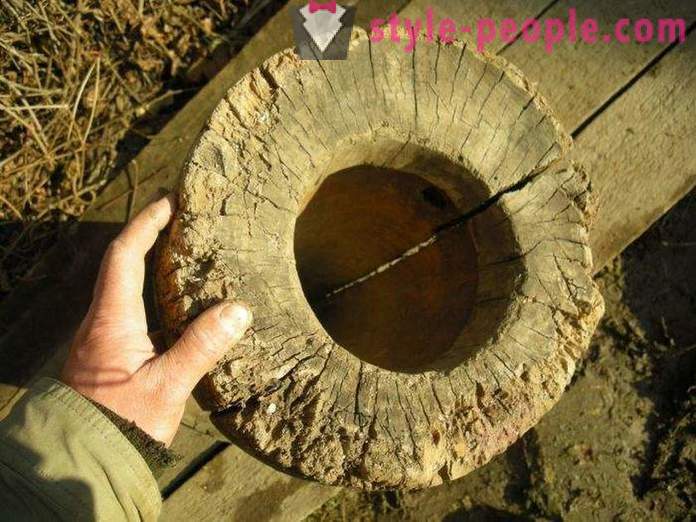
From the tree made pot, pour water into it and pounded until such time as she allegedly did not cleaned from unnecessary energy. Stupa was not just utensils. She attributed healing properties: in addition to water pounded her illness and fever had disappeared under the stupa. But as the water pounded in a mortar and pestle, and to sense something that usually does not happen, then the value of this expression represents useless, useless occupation. Is that the bride in anticipation of the wedding train groom must have been hard water it. This was necessary to ensure that young showed his patience and gentleness. The audience laughed and bantered, groom pounded the water - but it's better than to hurt and annoyed.







































